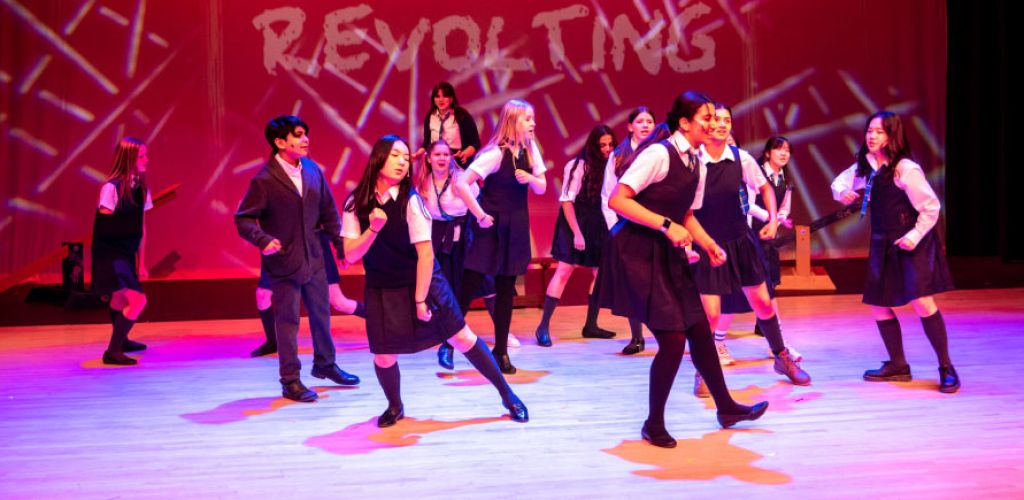By: Dr. Michael Simmons, Assistant Head of School: Academics
Strathcona-Tweedsmuir School (STS) develops the knowledge students require to succeed within and beyond the classroom. While our teachers understand that reading, writing, and numeracy skill acquisition are essential educational outcomes, they also know that 21st century students cultivate other literacies if they are to become engaged in rewarding pursuits.
Engineers and architects, for example, leverage the language of calculus and geometry to build and create new structures. Computer programmers develop their own language to inform how we engage with technology and each other. Visual and performing artists cultivate discipline-specific ways of communicating diverse aspects of the human condition through music, drama, mark-making, and sculpture. These kinds of artistic languages can challenge and deepen our understanding of ‘self’ and ‘other’. Entrepreneurs speak the language of possibility in ways that stimulate the economy and the job market. Epidemiologists communicate through statistical discourses that help scientists and researchers conduct studies designed to keep people healthy. Environmentalists apply systems thinking narratives and mathematical models to explain changing weather patterns. While poets and storytellers use language creatively to reflect, distil, confront, and embellish.
Young people inhabit physical and digital worlds in ways their parents never experienced. The challenge for schools is to equip students with the critical thinking skills and literacies they need to authentically and safely engage in both worlds. When our Grade 1 students design and build playground structure prototypes based on field research they conducted at four different Okotoks playgrounds, they are cultivating 21st century literacies in math, research and innovation. When a Grade 8 Social Studies class simulates a legal trial about the impact Hernán Cortés had on the fall of the Aztec Empire, students are learning about power, culture, and technology in ways that promote a deep understanding of nation-building. When a Grade 12 Visual Arts class presents their portfolios to each other and the broader STS community, they are tasked with communicating abstract conceptual work that explores real-world issues that are grounded in identity, diversity, belonging, and gender. These kinds of classroom experiences are made possible because STS teachers plan their International Baccalaureate (IB) units of study around a pedagogical model that promotes inquiry in all three divisions: Primary Years Programme (PYP), Middle Years Programme (MYP), and Diploma Programme (DP). This approach to teaching helps keep learning relevant because, at its core, students are placed at the center.
Of course, learning is not confined to a classroom. Students at every grade participate in co-curricular opportunities that challenge and engage them. This can be difficult work at first because new experiences can bring uncertain outcomes, potential setbacks and fear – especially the fear of failure. However, STS teachers understand that relational trust-building is key to helping students develop the confidence and resilience they need to achieve their best outcome in any co-curricular activity. Athletics. Speech and Debate. Model United Nations. Plays. Musicals. Outdoor Education. These kinds of experiences develop new skills, friends, and literacies that will help students navigate their unique path to self-defined success.
“The challenge for schools is to equip students with the critical thinking skills and literacies they need to authentically and safely engage in both (physical and digital) worlds.”
